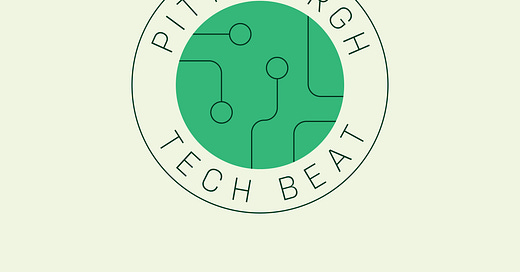SUP.
Welcome back to the monthly summary of the most interesting Pittsburgh tech news I could find from the past month. This time around, it’s just July company news since I never posted for July, and without the podcast. This is because I was hard at work until Labor Day finishing up my MBA and helping with a seriously cool product launch at Niche. I’ll have August’s summary posted this weekend, including the Tech Professional section. Sorry for the wait!
All companies mentioned are local to Pittsburgh unless otherwise noted.
Here’s what happened this July:
Company News
Polish software company Spyrosoft announced plans to open a Pittsburgh office. Their only other US-based office is in Michigan. They gave some of their reasoning for this choice in this interview with technical.ly.
In another office move, The Robotics Factory, is moving into Lawrenceville’s Tech Forge building on 47th street. It aims to provide both tooling and space to startups looking to scale their robotics operations.
Also in robotics, CMU also has plans to build an outdoor section of its new laboratory in Hazelwood Green as a “robotics playground.”
EVs of all kinds are popping up left and right around Pittsburgh. PGT Trucking out of Aliquippa is the latest company to join the trend by adding a new electric semi-truck to their fleet.
Speaking of vehicles, Aurora just finalized a new stock offering thanks to its executives agreeing to sell over a 30-day period. The company was also featured in Obama’s “Working: What We Do All Day” docuseries on Netflix. (If you’ve seen this episode, let me know in the comments if it’s worth watching!)
For those that might need insurance for all these robots and self-driving vehicles, a new automation and robotics insurance startup Koop raised $4 million this month towards growing their product.
Duolingo reduced the size of their app by 20%, making it much easier to download and update on slower connections. As an SRE guy, I really enjoyed reading this article, but I think it’s a great read for anyone concerned about app performance or reliability.
In health tech, Pitt and UPMC researchers developed a machine learning algorithm that accurately predicts patients that are at high risk for post-surgery health complications. The model was trained on the records of over 1.25 million patients and is now being used across 20 hospitals.
ChatGPT fever continues, with Ansys integrating the AI tool in their customer support software. The security of product like ChatGPT may be in question, though. In a new report, CMU researchers in partnership with the Center for A.I. Safety demonstrated easy ways to circumvent A.I. safety measures, allowing the bots to generate “harmful information” seemingly without limits. They made the New York Times, and it’s a fantastic read.
Astrobotic won a $34.6 million grant from NASA to demonstrate power transmission on the moon. This will involve exactly what you would think it would involve: a lander unreeling a cable, plugging into another module, and receiving high voltage electricity. Pretty neat, but won’t be useful until people actually move to the moon.
BDSA and MSA are now partnered on an initiative to collect and deliver weed sales data. Hopefully they respect customer privacy.
The feud between the government and Spin e-scooters continues, with no end in sight. The scooters are now banned, but who knows for how long.
Finally, this Pittsburgher made a sick machine to crush cans real good.
That’s all for now! See you this weekend for the August roundup!
—Austin




